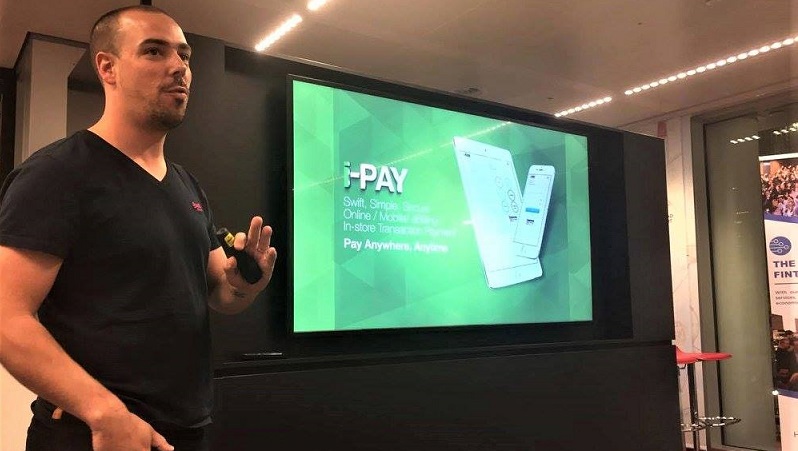In a move that signals a major leap forward in generative AI, OpenAI has quietly rolled out ChatGPT-5, its most advanced model to date….
SA entrepreneurs detail the software they use to run their tech start up

Jira, Google Suite for Business, Ruby on Rails and fathomhq. These are just some of the software programs that SA tech entrepreneurs are using to set up their startup.
Ventureburn spoke to founders from eight SA tech startups to find out what software programs each used to launch their startup — why they opted for the programs they opted for and on whose recommendation they took these up and how much these cost their startup to run.
Stuart Murless (Feastfox)
Stuart Murless, the co-founder of Cape Town eating-out app Feastfox, says he relies heavily on Google Suite for Business for everything from email to storage to video calls to document editing, Facebook for app download ads, Xero to manage accounting and SimplePay to manage HR.
Feastfox last year raised $175 000 primarily from Silicon Valley-based angels and venture-capital (VC) firms (see this earlier story).
Murless calls Google Suite for Business the “market leader” for simple business tools for small businesses. The software, he says, has a simple and affordable cost structure of $5 per user per month.
“We have a distributed team which means lots of video calls — Google Meet works better than any other product I have used. Google Drive, Sheets and Docs allow us to collaborate on work no matter where we are,” he explains. Despite this he does point out that Gmail has some limitations when it comes to formating emails.
He says the startup tested quite a few different digital marketing platforms but has found that Facebook and Instagram ads are the best performing for the company. With these two platforms the startup need only pay for downloads or user registration (in app event) rather than clicks or CPM (Cost per thousand impressions).
One limitation he notes however is that paid acquisition can get expensive. However, he admits that his team hasn’t found cheaper digital channels which provide quality downloads.
He says the recommendation to use Xero came from a fellow chartered accountant. He particularly likes the integration with the company’s bank account and auto-posting features which automate a lot of the work, adding that it only takes him about 15 minutes per month to do the company’s accounts.
Joshua Miltz (Bitfund)
Bitfund co-founder Joshua Miltz lists as the three most important pieces of software his team used to set up the cryptocurrency asset management platform as Ruby on Rails. The startup uses this for their programming language and web framework, along with Microsoft Excel and Sublime Text.
Miltz and his co-founders launched the SA cryptocurrency investment platform earlier this month (see this story).
“Ruby on Rails is open-source web development software which is free to use for commercial purposes. The technology is mature and has a large support base and community that is able to assist when need be,” says Miltz.
He calls it as great tool for its ability to quickly develop secure, high quality and production-ready applications. “The fact that it is free to use is also a huge benefit, especially for a startup that may not be able to afford expensive licensed alternatives,” he adds.
The startup used Microsoft Excel for its modelling needs. “Being in the fintech space and dealing extensively in asset management, our company’s needs in this regard are relatively high. Excel has been a key software tool that we have used since day one,” he explains.
Sublime Text he says is the code editor of choice for BitFund’s developers. “It is fast, supports a wide variety of plugins, and has generally good support. Unfortunately licensing is expensive if you want to remove occasional popup ads. We have previously used Atom, a free alternative but felt it was slower and more clunky.”
Google Drive has been the startup’s product of choice for cloud storage. “It is secure, supports permissioning, and helps ensure that we never risk losing important files in the event of a hard drive failure,” says Miltz.
Thomas Pays (i-Pay)
Thomas Pays, the founder of fintech i-Pay, says the three most important software programs he used to start his business were Monday.com (DaPulse), fathomhq and Pipedrive.
The Johannesburg based startup last year secured a R10-million investment from venture capital (VC) firm and registered 12J VC fund Kalon Venture Partners (see this story).
“I was fortunate to come from a digital agency background so automation is what we live by and it was key to make sure we run a business efficiently, especially when you charge per hour.
“Back then we already had spent weeks researching the various tools testing them prior using it internally with our team. When it comes to a collaborative tool we tested over 10 months at least 12 different software before finding the right one,” he says.
He says Monday.com offers a “very rich” fully customisable environment that can be used across the entire business at every employee level and departments.
This, while FathomHQ has been a great way for his team to get complex in-depth reporting of performance and financials at a glance. Pipedrive as a cloud-based sales software has allowed those on his sale team who are always on the move to be up to date on all latest deal with a minimum input and maximum output, he says.
He says as cost was an issue as a startup, he and his team picked a solution that either offered a free trial but that would also remain within its budget once the startup moved to the paid version.
Ndabenhle Junior Ngulube (Pineapple)
Ndabenhle Junior Ngulube, the co-founder of insurtech startup Pineapple, says the three most important programs that the startup used to start out were Trello, Slack and Github.
The startup this month announced the launch of its new insurance product (see this story).
Trello is a ticketing app that allows one to assign tasks to individuals and track the progress of these tasks. Slack is a team-based, multichannel communications app, and Github is a web-based version control tool. Why did they go for these programs?
Explains Ngulube: “The programs had to offer a competitive pricing plan (as we are a small startup), be user-friendly (ie not have a steep learning curve), be scalable (allow us to add more team users, with differing administrative rights, to our account as our team grows) and finally be able to integrate with our communications tool in order to provide in-channel, real-time notifications”.
He says the recommendation to use these programs came via those in the startup’s team — some of whom had past experience with these programs.
The team did try other solutions such as Gmail for internal communication, Jira for ticketing and Unfuddle for version control, but Ngulube says there were limitations to these.
These he lists as things like losing track of conversations if a reply was not drafted immediately when using Gmail or the product (Jira) being too feature-intensive and verbose for what the startup needed. With Unfuddle the team found that it lacked critical features that help with reconciling commits and managing or reviewing merges in details.
Where possible, the team makes use of free versions of the programs. “For instance, on Trello, we are still making use of their free tier. This tier offers us everything we currently need, thus we are happy with it.”
“However, on a program such as Slack, where we are billed per multi-channel team member, in order to get around this we balance between multi-channel and single-channel team members,” he says.
Adi Kaimowitz (Virtual Actuary)
Virtual Actuary founder Adi Kaimowitz calls Zoom the company’s breakthrough program. “It is very very reliable. I found other video type programs always seemed to have issues and frankly never worked properly.”
Ventureburn reported earlier this month that things are hotting up for SA web platform Virtual Actuary, which allows actuaries to collaborate on projects without the need for expensive offices. It comes as the startup has just turned down an investment bid from a major local insurance company.
Kaimowitz says the Zoom has allowed the platform’s actuaries to be in the office with the client sitting at the boardroom and dialing out from the boardroom telephone to the digital meeting room which he and some of the actuaries who couldn’t be in the office, could plug in with.
“It has taken expensive conferencing facilities and made it off the shelf and affordable for a lean start-up to use. We also use it to conduct team meeting using the video function.
“We can share screens with each other which makes learning instant and seem-less. We have been involved with overseas clients and our team plugging in from five countries around the world,” he adds.
The startup also makes good use of Slack and Google Sheets, which allows some of the senior executive team to collaborate on documents in real time.
Matthew Henshall (Skillup)
Skillup co-founder Matthew Henshall says there’s “no magic formula” to what software program he used to launch his startup. Nonetheless he lists the products he used as GSuite for email, Sublime for the startup’s text editor and Chrome Dev Tools for the startup’s browser.
The Cape Town based edtech which provides access to thousands of highly skilled and vetted tutors earlier this year netted venture capital (VC) funding from local VC fund Knife Capital (see this story).
The startup also uses GitLab over Github. He explains his choice: “Because it (Gitlab) is free, a cool company, and they’ve got good continuous integration meaning we can update the live website in minutes”.
The startup picked GSuite instead of its own hosted email, “probably the first thing we paid for” and bought MailMerge a Gmail plugin emailer ($29) — which Henshall says is probably the second thing he and his co-founders bought.
“These programs have taken us from day one to day 1000. GSuite comes with Sheets which we use daily. We’ve probably go through about a dozen project management tools, none have stuck, we reverted to Google Sheets,” he adds.
Henshall says when the teams worked remotely the team members used to use appear.in to have team conferencing and meetings, but has recently switched to its own software (https://www.skilluptutors.
GSuite costs $4 per user a month and Henshall reckons the startup probably spent less than $30 a month on software as a service (SaaS) for the first two years. “Even today it is less than $500 per month in SaaS fees,” he says.
Ignatious Nkwinika (Investsure)
Investsure co-founder Ignatious Nkwinika lists the startup’s three most important programs as Visual Studio Code, Git and Jira.
In May the Johannesburg based startup launched what it claims is the “world’s first” insurance cover for investors.
Nkwinika explains that the startup went with Visual Studio Code for its multi-platform support (Windows, Linux, MacOS), which meant that the developers were not constrained to one particular platform and they are able to work in an environment they comfortable in.
There were also zero costs with what Nkwinika describes as “great” plugins to accelerate web-based applications. It also has useful plugins for different phases of SDLC, and supports multiple languages.
He says Git and Jira are great collaboration tools. “With these tools, agile principles and processes, our (already matured) team were operating at very high level of efficiency. These tools ensured transparency amongst team members which was great for quicker feedback,” he says.
He says there were no major costs for the tools — as the startup pays only for Jira and then only with a small fee of $10 a month.
Llewellyn Morkel (DreamBlock.com)
Llewellyn Morkel, the founder of cryptocurrency product DreamBlock.com (formerly known as Prosperiprop) lists as his three most important software products Microsoft Powerpoint, Google Docs and Jira.
Powerpoint he uses for pitches to potential investors, clients and partners and Google Docs for his word program. He calls Jira a “must have for software entrepreneurs”. It helps him to manage complex software development projects
“Jira is simply amazing. It becomes your command centre — the Bridge of the Starship Enterprise — from where you navigate and control your software project,” he says.









